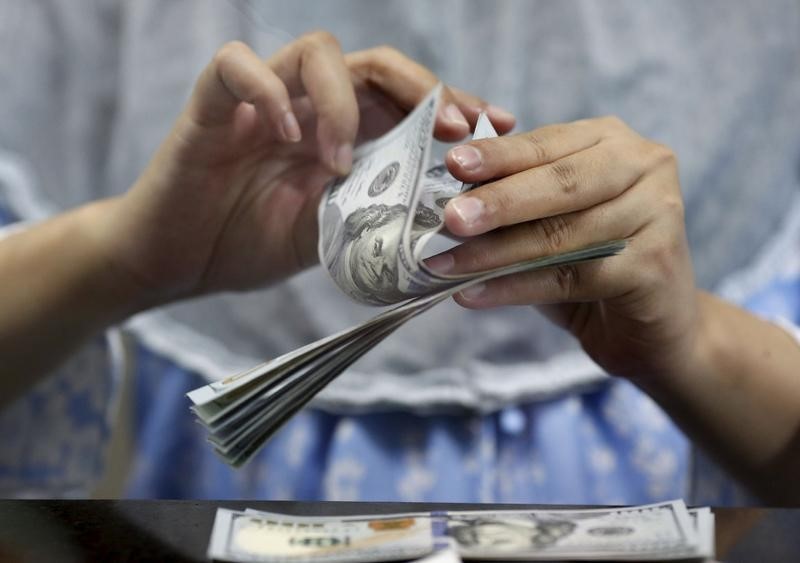By Gina Lee
Investing.com – The dollar was up on Thursday morning in Asia, holding a narrow range, while the riskier Australian and New Zealand dollars were near multi-week highs. Investors now turn their attention to the latest U.S. inflation data.
The U.S. Dollar Index that tracks the greenback against a basket of other currencies inched up 0.06% to 95.552 by 12:39 PM ET (5:39 AM GMT).
The USD/JPY pair edged up 0.10% to 115.61.
The AUD/USD pair inched down 0.05% to 0.7174, while the NZD/USD pair inched up 0.01% to 0.6883.
The USD/CNY pair inched down 0.06% to inched down 6.3588 and the GBP/USD pair inched down 0.01% to 1.3531.
The Australian dollar was not far from the $0.7194 touched the day before, which was near a three-week high.
Westpac analysts said in a note that the "explosion higher in metals markets, lift in global risk sentiment and a softish U.S. dollar" was supporting the Australian currency, adding "a close above $0.7183 would suggest a further extension towards $0.7225 and possibly $0.7275."
Across the Tasman Sea, the New Zealand dollar was near the two-week high of $0.66975 hit on Wednesday. The improved risk sentiment also weighed slightly on the safe-haven yen, which traded near the weak end of a recent range.
However, currencies were broadly stuck in a holding pattern ahead of the U.S. data, which includes the consumer price index and due later in the day. The data could also provide further clues about the U.S. Federal Reserve's timeline to tighten its monetary policy.
Investors are ramping up bets that the Fed will hike interest rates when it meets in March. However, Cleveland Federal Reserve President Loretta Mester on Wednesday said that she did not see a compelling case to start with a 50-basis point rate increase.
However, Mester added that future rate increases after March would depend on the strength of inflation and how much it moderates or persists.
Both U.S. and European government bond yields have been on an upward trend as expectations of interest rate hikes increase. These expectations quietened on Wednesday and Thursday morning, however, with yields on U.S. benchmark 10-year notes at 1.9354% in early Asian trading Thursday. This was slightly below Tuesday's 1.970%, which was a 27-month high.
The euro traded at 1.1416, edging lower throughout the week after European Central Bank President Christine Lagarde said on Monday that she saw no need for an excessively tight monetary policy, calming expectations of a hike in 2022.
